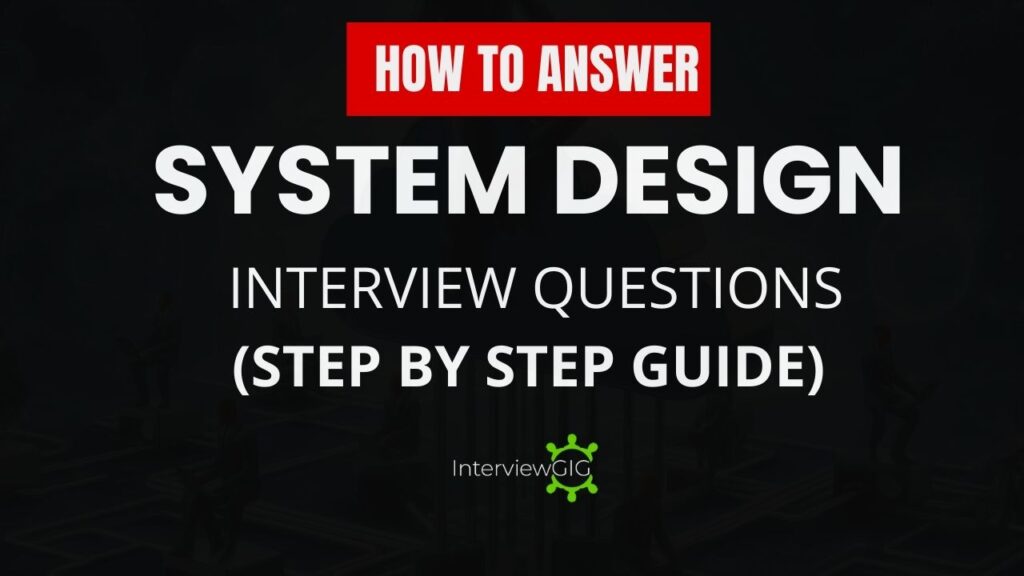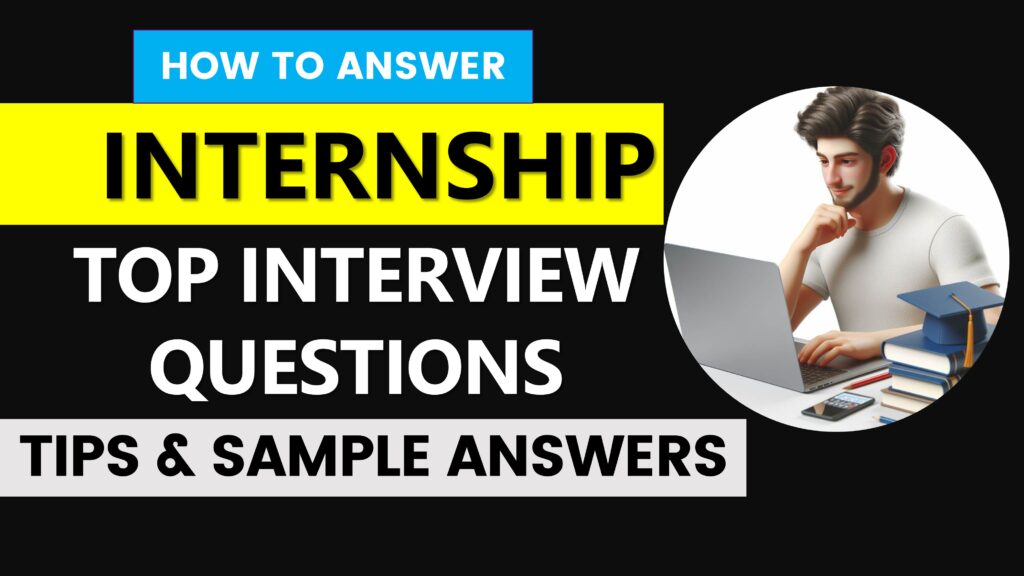Bench Sales Recruiter Interview Questions
Bench Sales Recruiting is a specialized area within the recruitment industry focused on marketing and placing IT professionals who are currently not engaged in any projects (referred to as “bench” employees). This role involves identifying potential job opportunities, effectively promoting the skills and experience of bench consultants, coordinating interviews, and facilitating successful placements with client companies. A Bench Sales Recruiter needs to have strong communication and negotiation skills, a deep understanding of various IT roles and technologies, and the ability to build and maintain relationships with both clients and consultants to ensure continuous engagement and successful job placements.
Below are some of the most commonly asked Bench Sales Recruiting interview questions and answers for freshers and experienced candidates:
Question: What is your understanding of bench sales?
Answer: Bench sales, also known as “bench sales recruiting” or “bench marketing,” is a process commonly found in the IT staffing and consulting industry. It revolves around managing and optimizing the utilization of IT consultants or professionals who are currently between projects, referred to as being “on the bench.” The primary objective of bench sales is to minimize the downtime of these IT consultants by actively marketing their skills and experience to potential clients and matching them with suitable job opportunities.
Question: What are the roles and responsibilities of bench sale recruiting?
Answer: The role of a bench sales recruiter is critical in the IT staffing and consulting industry, where they aim to match available IT consultants who are between projects (on the bench) with suitable job opportunities. The responsibilities of a bench sales recruiter include:
Candidate Sourcing and Evaluation: Identifying and sourcing IT professionals on the bench, assessing their skills, qualifications, and availability for new projects.
Client Relationship Management: Building and maintaining strong relationships with client companies to understand their IT staffing needs and requirements.
Negotiation: Negotiating contract terms, including rates, project duration, and other conditions, with both clients and candidates.
Marketing and Sales: Creating compelling profiles for available consultants, highlighting their skills and experience to attract potential clients.
Compliance and Documentation: Ensuring that all necessary legal and compliance documentation, such as employment contracts, visas (if applicable), and background checks, are in place for both consultants and clients.
Monitoring Bench and Consultant Placement: Keeping track of consultants on the bench, their availability, and the progress of candidates placed on projects to minimize bench time.
Industry Knowledge: Staying informed about industry trends, client needs, changes in immigration laws (if applicable), and the IT job market to make informed decisions and provide valuable guidance to clients and candidates.
Networking: Building a strong network of contacts within the IT staffing and consulting industry to facilitate better candidate-client matches.
Problem-Solving: Addressing challenges, conflicts, and issues that may arise during the placement process, ensuring smooth transitions for consultants.
Performance Metrics: Meeting or exceeding performance metrics, such as the number of placements, revenue targets, and client satisfaction goals.
Customer Service: Providing excellent customer service to both clients and consultants, ensuring their needs are met and issues are resolved promptly.
Question: What are the different types of bench sales?
Answer:
H1B Bench Sales: This type focuses on H1B visa holders, helping them find new project assignments in compliance with their visa status. Recruiters ensure that H1B consultants’ transition smoothly from one project to another, minimizing bench time.
L1 Bench Sales: L1 visa holders are often intra-company transferees within multinational organizations. L1 bench sales recruiters specialize in finding suitable project placements for these professionals, keeping in mind their visa requirements.
EAD Bench Sales: Consultants with Employment Authorization Documents (EAD) may include individuals on various visa categories or those with work permits. EAD bench sales recruiters assist these professionals in securing job opportunities in alignment with their qualifications and work authorizations.
OPT (Optional Practical Training) Bench Sales: OPT is a program that allows international students on F1 visas to work in their field of study for a specified period after graduation. OPT bench sales recruiters help recent graduates secure employment opportunities in line with their educational backgrounds, often in IT-related roles.
GC (Green Card) Bench Sales: Some bench sales recruiters specialize in helping consultants who are in the process of obtaining a U.S. Green Card (permanent residency). They facilitate job placements and ensure that the consultant’s job is in line with the green card sponsorship requirements.
Corp-to-Corp (C2C) Bench Sales: In C2C bench sales, recruiters work with corporations rather than individual consultants. They identify project requirements from client companies and match them with available corporations or vendors who can provide the required IT services.
Question: What is the difference between Recruiting and Bench Sale Recruiting:
Answer:
Recruiting: Recruiting, in a general sense, refers to the process of finding and hiring suitable candidates for job openings. This can apply to various industries and roles, and the focus is on identifying candidates who match the requirements of a job or position, often within the organization itself.
Bench Sale Recruiting: Bench sale recruiting is a specific subset of recruiting, typically found in the IT staffing and consulting industry. It focuses on matching IT consultants who are between projects (on the bench) with suitable job opportunities, often at client companies. The primary goal of bench sale recruiting is to minimize bench time for these consultants and maximize their billable hours while complying with visa and legal requirements when applicable.
Question: What is the step-by-step process of Bench Sale Recruiting?
Answer: Bench sale recruiting involves several key steps, including:
- Identifying consultants on the bench.
- Sourcing and evaluating these consultants.
- Building and maintaining relationships with client companies.
- Negotiating contract terms, rates, and conditions.
- Marketing available consultants to clients.
- Ensuring compliance with immigration and legal requirements.
- Monitoring bench and consultant placement to minimize downtime.
- Staying informed about industry trends and changes in regulations.
- Meeting performance metrics and providing excellent customer service.
The specific steps can vary by organization, but the core objectives are to reduce bench time for consultants and match them with suitable job opportunities.
Question: What do you know about OPT Recruiting?
Answer: OPT, or Optional Practical Training, is a program in the United States that allows international students on F-1 visas to work in their field of study for a specified period after completing their degree. OPT recruiting is the process of helping these students find job opportunities during their OPT period. Recruiters work with both students and potential employers to match candidates with suitable positions, ensuring that the work aligns with their degree and visa requirements. OPT recruiters need to be knowledgeable about the regulations governing OPT and maintain compliance throughout the process to help students secure meaningful employment experiences.
Question: What are the payment terms in the USA, can you explain any of them?
Answer: Common payment terms in the USA include:
Net 30: Payment due within 30 days.
Net 60: Payment due within 60 days.
2/10, Net 30: 2% discount if paid within 10 days, full payment due in 30 days.
Payment in Advance: Full payment before delivery.
Progress Payments: Payments at project milestones.
Letter of Credit (LC): Bank guarantee for international transactions.
Open Account: Payment negotiated later. (others)
COD: Cash on Delivery.
Electronic Funds Transfer (EFT): Payment electronically from buyers to seller’s account
Question: Can you explain C2C , W2,and C2H?
Answer: C2C (Corp-to-Corp): This is a payment arrangement where a corporation (vendor) provides services to another corporation. It typically involves a business-to-business contract.
W2: This is an employment status where an employee is on the payroll of a company as a full-time, regular employee, and the company withholds taxes and provides benefits.
C2H (Contract-to-Hire): This arrangement starts as a contract position with the possibility of becoming a full-time, W2 employee after a specified contract period.
Question: Can you explain about Prime vendors, submissions and closures?
Answer:
Prime Vendors: Prime vendors, in the context of bench sales or IT staffing, are typically established and reputable staffing firms that have direct contracts or relationships with clients (end-user companies). They are often the primary point of contact between clients and subcontractors (other staffing firms or individual consultants) when it comes to fulfilling job requirements. Prime vendors play a crucial role in the bench sales process, as they bridge the gap between clients and the broader IT staffing ecosystem.
Submissions: Submissions refer to the process of presenting potential candidates or resumes to a client (often through a prime vendor) for consideration in filling a job opening. These submissions typically include candidate profiles, resumes, and relevant details to demonstrate how a particular candidate matches the client’s requirements.
Closures: In the context of bench sales, “closures” typically refer to successfully closing a deal or agreement with a client, resulting in the placement of an IT consultant on a project. A closure involves finalizing contract terms, rates, and other conditions, leading to the commencement of the project. Successful closures are a key metric of performance for bench sales recruiters.
Question: What are the common visa types such as H1B, L1, and others, and how do they impact the bench sales process?
Answer:
H1B Visa: The H1B visa is a non-immigrant visa that allows U.S. employers to temporarily employ foreign workers in specialty occupations. In bench sales, understanding H1B visa regulations is crucial as recruiters must ensure that H1B visa holders’ job placements comply with legal requirements. This may involve verifying that the consultant’s qualifications match the job, that the prevailing wage is met, and that the consultant’s status is maintained.
L1 Visa: The L1 visa is for intra-company transferees who work for multinational companies and are temporarily transferred to the U.S. Understanding L1 visa regulations is important in bench sales to ensure that consultants on L1 visas are placed in compliance with the visa’s purpose and legal requirements.
EAD (Employment Authorization Document): This is not a visa but a work authorization document. Some candidates may have EADs based on their immigration status, allowing them to work in the U.S. Bench sales recruiters must be aware of EAD holders’ eligibility to work and find job opportunities aligned with their work authorizations.
F1 Visa with OPT (Optional Practical Training): F1 students may be eligible for OPT, which allows them to work in the U.S. in a position related to their field of study. Bench sales recruiters dealing with OPT candidates should understand the regulations governing OPT employment and help students find jobs that align with their degrees.
Understanding these visa types is crucial in bench sales to ensure compliance with immigration laws and to facilitate successful placements for consultants with specific visa statuses. Violating visa regulations can have serious legal consequences for both the consultant and the staffing firm, so recruiters need to be well-informed and meticulous in their practices.
Question: What are the various time zones in the United States?
Answer: The United States spans multiple time zones, including Eastern Time (ET), Central Time (CT), Mountain Time (MT), Pacific Time (PT), and more. These time zones differ by hours, with ET being ahead of PT by three hours, for example.
Question: Can you mention some popular job boards, and which one have you frequently used, and why?
Answer: Several job boards include
- Indeed
- Glassdoor
- Monster
- Dice
- ZipRecruiter
- Simply Hired
- CareerBuilder
- Snag
- Robert Half
- Job.com
USAjobs.gov The job board I’ve most frequently used is LinkedIn. Its vast user base, extensive job listings, and networking features make it a valuable resource for both job seekers and recruiters.
Question: Have you previously worked in recruitment or sales roles?
Answer: Yes, I have experience in recruitment, specifically in IT staffing and bench sales roles. I’ve worked as a bench sales recruiter for [X] years, successfully matching consultants with client opportunities and ensuring compliance with visa regulations.
Question: What are the key skills and qualities necessary for a successful bench sales recruiter?
Answer: Successful bench sales recruiters need strong communication and negotiation skills to build client relationships and secure placements. Attention to detail, knowledge of immigration laws (if applicable), and the ability to stay updated on industry trends are also essential qualities. Additionally, empathy and problem-solving skills help in addressing challenges effectively.
Question: Can you describe some best practices for candidate sourcing and screening?
Answer: Best practices for candidate sourcing involve using a multi-faceted approach, including leveraging personal networks, online job boards, and social media. When it comes to screening, it’s crucial to assess not only technical skills but also cultural fit, motivation, and work authorization compliance. Thorough reference checks and background verification are also key.
Question: How would you go about expanding your network of candidates and clients in the industry?
Sample Answer: I would actively participate in industry events, conferences, and networking groups to build relationships. Additionally, I would use social media platforms like LinkedIn to connect with potential candidates and clients, fostering meaningful interactions and staying updated on market trends.
Question: How would you handle a challenging conversation with either a candidate or a client?
Answer: When facing a difficult conversation, I would approach it with empathy and active listening. Understanding their concerns and needs is vital. I would seek common ground and aim for a win-win solution. Effective communication and transparency are key in resolving issues and maintaining positive relationships.
Question: How effectively do you maintain communication with candidates throughout the interview process?
Answer: Effective communication with candidates during the interview process is crucial. I ensure timely updates on their progress, clear explanations of the next steps, and encourage open dialogue to address any questions or concerns they may have. It’s essential to create a positive candidate experience by keeping them informed and engaged.
Question: Have you worked with candidates residing outside of the United States?
Answer: Yes, I have experience working with international candidates. This involves understanding different time zones, visa requirements, and cultural nuances in communication. Effective coordination and ensuring a smooth process for both candidates and clients are key in these situations.
Question: When is the optimal time to reach out to a candidate regarding a job offer?
Answer: The best time to contact a candidate with a job offer is promptly after a decision is made. It’s important to strike while the iron is hot, typically within 24-48 hours after finalizing the decision to ensure the candidate remains engaged and motivated.
Question: To enhance our sales team’s performance, what strategies would you employ?
Answer: Strategies for improving a sales team’s performance include setting clear performance goals, providing continuous training and development, offering mentorship and coaching, implementing performance metrics, and fostering a competitive yet collaborative team culture. Regular feedback and constructive evaluation are also crucial for improvement.
Question: In which industries have you gained the most experience in recruiting?
Answer: My primary expertise lies in recruiting within the IT and technology sector. Over the years, I’ve developed a deep understanding of this industry, its specific skill sets, and the unique challenges it presents in the recruitment process.
Question: What’s your approach to establishing and nurturing relationships with candidates and clients?
Answer: I believe in a relationship-centric approach. I start by actively listening to understand their needs and expectations. I maintain open and transparent communication, providing timely updates and feedback. By consistently delivering value, being responsive, and building trust, I establish and nurture strong, long-lasting relationships.
Question: How do you effectively manage your recruitment pipeline to ensure goal attainment?
Answer: To manage my recruitment pipeline effectively, I prioritize tasks, set clear goals, and use robust applicant tracking systems. I regularly review and update the pipeline, ensuring that candidates are progressing through the stages. By tracking key performance metrics, I make data-driven adjustments to meet and exceed recruitment goals.
Question: How frequently do you update your databases of potential candidates and contact lists?
Answer: I update my candidate database and contact lists regularly. I believe in maintaining the accuracy of candidate information, keeping track of their availability, and ensuring compliance. I typically update these databases at least weekly to stay current with candidates’ qualifications and market changes.
Question: How would you handle a situation where a candidate declines a job offer after multiple interviews?
Answer: In such a scenario, I would first seek feedback to understand the candidate’s reasons for declining. I would maintain professionalism, express appreciation for their time and effort, and keep the door open for future opportunities. It’s essential to handle rejections gracefully and maintain a positive relationship.
Question: How do you address demanding clients who seek quick placements, and what strategies do you use to meet their expectations?
Answer: When dealing with demanding clients, I prioritize communication and negotiation. I strive to understand the urgency behind their requests and present well-qualified candidates efficiently. However, I also ensure that the quality of the recruitment process is not compromised. Balancing speed and quality is key, and I work to find solutions that meet both client expectations and candidate suitability.
Question: Can you describe your experience and strategies for effectively cold calling and generating leads in bench sales?
Answer: In my experience, successful cold calling in bench sales requires a personalized approach. I research the prospect thoroughly, understand their needs, and tailor my pitch accordingly. I emphasize the value we can provide, maintain a professional and friendly tone, and aim to build rapport. Persistence and follow-up are crucial, as is tracking and analysing call outcomes to refine my approach.
Question: How would you approach the task of sourcing and screening candidates for a challenging-to-fill position?
Answer: For hard-to-fill positions, I would begin by conducting a thorough analysis of the job requirements. I would leverage multiple sourcing channels, including job boards, social media, and personal networks. In screening, I prioritize evaluating not only technical skills but also the candidate’s cultural fit and motivation for the role. Maintaining clear and transparent communication throughout the process is essential.
Question: Have you utilized social media platforms to discover and connect with potential candidates?
Answer: Yes, I have utilized social media platforms, especially LinkedIn, to identify and connect with potential candidates. These platforms offer a valuable space for networking, building professional relationships, and staying updated on industry trends. I ensure that my approach on social media is respectful, professional, and aligned with candidates’ preferences.
Question: What methods do you employ to ensure a positive candidate experience throughout the recruitment process?
Answer: To ensure a positive candidate experience, I prioritize clear and timely communication. I keep candidates informed at every stage, provide constructive feedback, and maintain a respectful and professional demeanor. I also seek and incorporate their feedback to continuously improve the recruitment process.
Question: Are there any questions or concerns you’d like to address regarding the bench sales recruiting role or the company you are interviewing with?
Answer: I would appreciate more insights into the company’s specific goals, challenges, and expectations for the bench sales role. Additionally, understanding the company’s values and culture would be valuable for me to assess alignment with my own professional values and aspirations.





